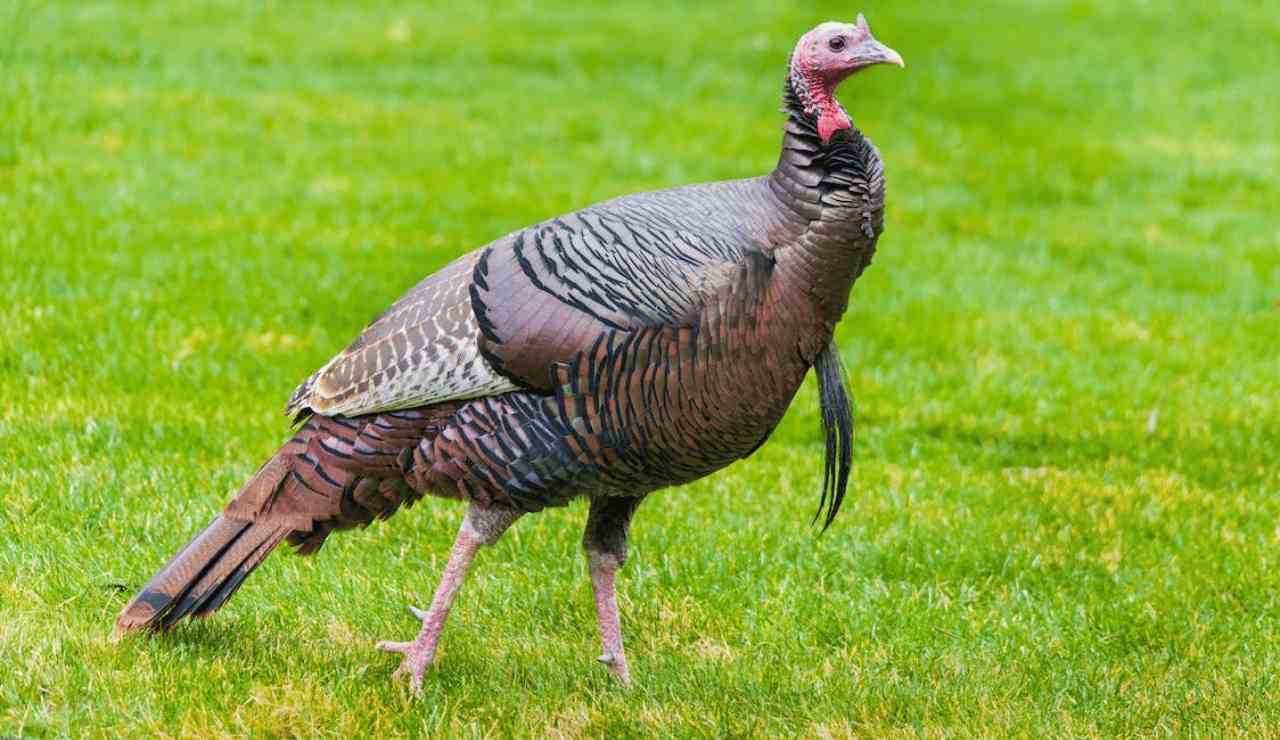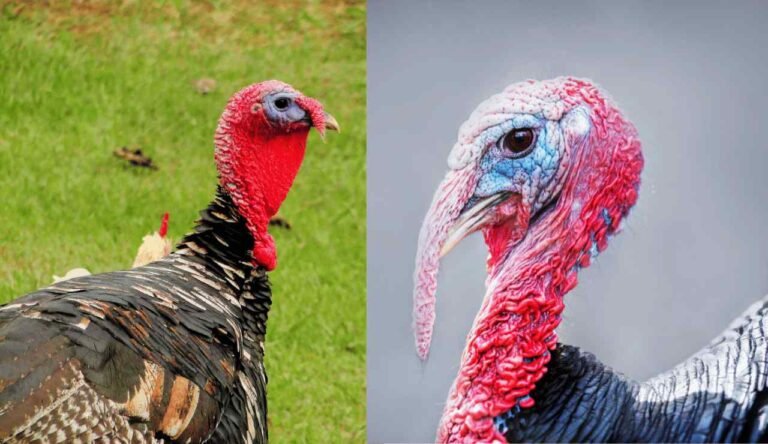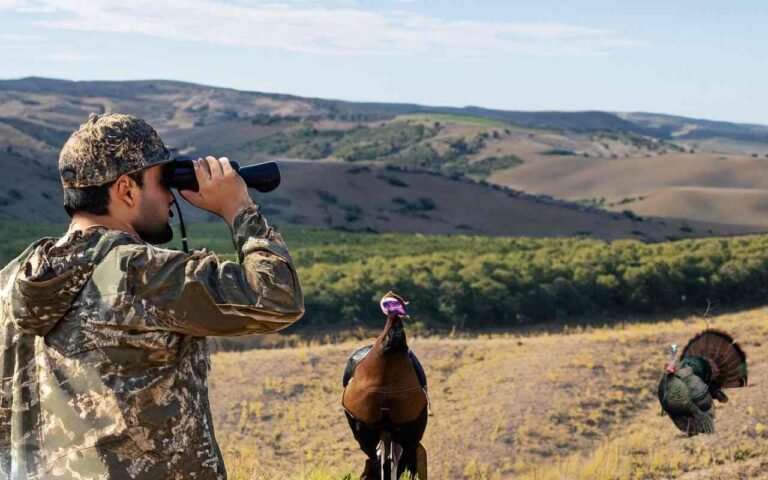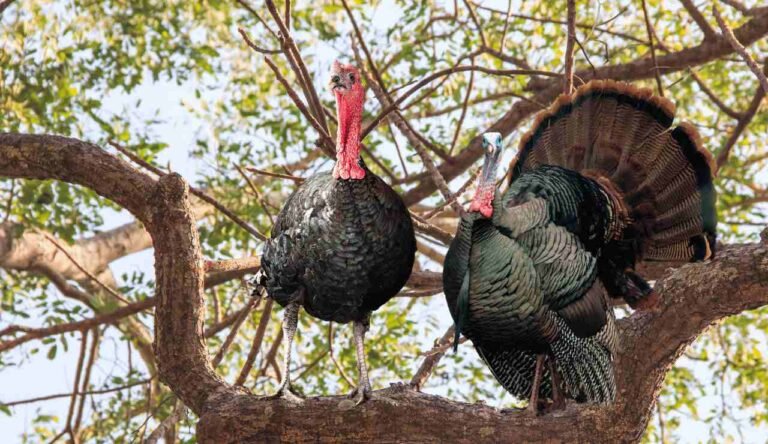How Fast Can A Turkey Run? Discover Surprising Truth About Speed of A Turkey!
Knowing the prey’s speed and agility as a hunter is essential for a successful hunt. One of the most often-asked questions about turkey hunting is, “How fast can a turkey run?” Planning a hunting strategy requires understanding a turkey’s maximal speed and mobility since it affects how fast it can avoid danger and how much land it can cover before blending into the undergrowth. This essay will examine a turkey’s sprinting prowess and provide insights on how it may impact your hunting experience. So be ready to discover more about the speedy and elusive wild turkey!
How fast can a turkey run?
Turkeys can run for brief periods at up to 25 mph speeds, making them competent runners. According to some accounts, they can reportedly sprint up to 35 miles per hour. However, estimates of their speed of Movement differ. Turkeys may run as fast as 40 mph when they’re being followed by a predator. Keep in mind that turkeys can fly at rates of up to 55 miles per hour over short distances. However, it is generally acknowledged that they can run at 20 to 25 mph speeds.
Body structure and characteristics
External body parts that Influence Movement
| Turkey Body part | Function |
|---|---|
| Wings | Used for flight and balance |
| Tail | Used for flight and balance |
| Thighs | Used for movement and strength |
| Hocks | Used for movement and stability |
| Shanks | Used for support and balance |
| Spurs | Used for defense and dominance |
| Claws | Used for grasping and perching |
| Toes | Used for balance and support |
| Feathers | Used for insulation, body covering, and flight |
Average weight and height of a turkey
| Turkey | Average weight (kg) | Average length (cm) |
|---|---|---|
| Domestic male turkey | 10 | 130 |
| Domestic female turkey | 5 | 100 |
| Wild male turkey | (11-24) | 99-124 |
| Wild female turkey | 2.7-5.4 | 76-95 |
Turkey feather shapes and their functions
| Feather shape | Function |
|---|---|
| Contour feathers | Form the body shape and provide insulation |
| Down feathers | Provide insulation and maintain body temperature |
| Bristle feathers | Protect the eyes and nostrils |
| Filoplumes | Provide sensory information and help with balance |
| Semiplumes | Provide insulation and help with aerodynamics |
| Flight feathers | Provide lift and maneuverability during flight |
| Tail feathers | Provide lift and maneuverability during flight |
| Coverts or wing bows | Protect the wings during flight |
| Hackles | Used for display and as a defense mechanism |
Movement of a Turkey
Turkeys have various mobility options, including running, flying, swimming, and strolling. However, walking or running on the ground is their preferred propulsion. They can only fly a short distance and are not powerful flyers.
Types of Turkeys and Their Unique Features
Domesticated and wild turkeys come in various varieties, each with special traits. Some of the distinctions between the many varieties of turkeys are highlighted in the following table:
| Type of Turkey | Unique Features |
|---|---|
| Wild Turkey | Longer legs, thinner body, darker feathers, better flier |
| Broad Breasted White Turkey | White feathers, larger breast, meatier body |
| Bronze Turkey | Brownish-bronze feathers, good foragers, adaptable to different climates |
| Bourbon Red Turkey | Red feathers with white bars, docile temperament, flavorful meat |
| Narragansett Turkey | Gray-brown feathers with black bars, calm demeanor, good foragers |
| Black Turkey | Black feathers, good foragers, slower growers, flavorful meat |
Running Speed of a Turkey
| Type of Turkey | Wild Turkey | Domestic Turkey |
|---|---|---|
| Average Running Speed (mph) | 25-30 mph | 8-12 mph |
| Maximum Running Speed (mph) | 55 mph | 25 mph |
Factors that Affect the Running Speed of a Turkey
| Factor | Description |
|---|---|
| Terrain | Turkey speed depends on ground type. Turkeys run quicker on level and hard grounds than on soft or uneven ground. |
| Weather | Cooler temperature makes turkeys run quicker. Overheating slows turkeys. |
| Predator threat | Turkeys sprint faster to avoid predators. |
| Motivation | Food and mating prospects may inspire turkeys to run faster. |
| Health and age | Turkeys are speedier when young and healthy. |
| Genetics | Turkey running speed depends on breed and heredity. Some strains of turkeys have been specifically bred for faster running ability. |
How Turkeys Use Their Speed to Outsmart Hunters?
The speed and agility of wild turkeys are well recognized, and they often employ these qualities to avoid hunters. These birds can reach speeds of up to 25 miles per hour, making them tough for even the most skilled hunters to capture. To escape being hunted, turkeys don’t only depend on their speed, however. They also outwit predators by using their sharp senses and innate instincts. Because of where their eyes are located on the sides of their heads, they can see in a full 270 degrees. Hunters find it difficult to sneak up on them since they are very alert and can hear or sense even the smallest Movement.
The fact that turkeys often loop around and approach hunters from behind might throw them off guard and make it harder to acquire a clear shot. Overall, hunting wild turkeys is a difficult but rewarding activity for many hunters due to the high level of patience, skill, and comprehension of turkey behavior required.
Frequently Asked Questions
What is the maximum running speed of a turkey?
A turkey’s top running speed may change based on several variables, including age, health, and weight. Turkeys can probably run between 20 and 25 miles per hour, however estimates vary. Turkeys can normally run between 15 and 35 miles per hour. Strong legs that enable them to sprint up to 25 mph make wild turkeys well-renowned for helping them avoid predators. Wild turkeys can also fly briefly at up to 60 mph, while their top flying speed is approximately 55 mph. However, domesticated turkeys have given up their ability to fly and run as quickly as their wild counterparts in favor of larger, meatier breasts and legs.
How fast can wild turkeys run in comparison to farmed turkeys?
A wild turkey may reach speeds of up to 25 miles per hour, but the fastest a tamed bird can go is about 10 miles per hour. This results from domesticated turkeys being developed to have bigger, more meaty breasts and legs at the expense of their ability to sprint and fly. The size and weight of wild turkeys also vary, with males ranging between 11 and 24 pounds and females much less. As a result of their breeding for size, domesticated turkeys may weigh up to 50 pounds.
What factors can affect a turkey's running speed?
The pace at which a turkey runs may vary depending on several variables, including age, health, weight, climate, and terrain. A healthy turkey can move up to 10 miles per hour on average, while there have been isolated instances of brief bursts of 20 miles per hour. Wild turkeys are able to avoid being eaten by predators like foxes, coyotes, and raccoons because they have a top speed of 25 miles per hour. However, they only maintain their top speed briefly and mainly use it to escape danger. Finally, it can be said that a turkey’s running speed depends on various variables and is typically not maintained over long distances.
How can wild turkeys make use of their speed and agility?
The speed and agility that turkeys are renowned for helping them survive in the wild. They can run at high rates of up to 25 and 40 mph while being pursued by predators because of their muscular legs. Although they can fly briefly, they prefer to run and use their agility to move through the underbrush and dense forest. Since they can eat a wide variety of foods, turkeys utilize their speed to forage over broad areas in search of seeds, insects, and berries. They can see potential predators from further away because of their monocular, periscopic eyesight. They can swiftly shift their trajectory, allowing them to avoid predators and move through their surroundings.
Can a turkey outrun a human?
Turkeys can run at a maximum pace of 25 mph, quicker than the typical person. Although a person can outrun a turkey, the bird is known to be swift and agile and can quickly turn to avoid predators. Furthermore, turkeys can take off into flight if they get a running start, making them even more difficult to catch. It can be sufficient to make oneself huge and noisy to scare away a hostile turkey if you come across one. Given that turkeys are rarely aggressive against humans and are, in fact, more likely to be pursued by humans than the other way around, it is important to stress that they are not a species that people should be afraid of escaping from.
- Louisiana Turkey Season 2026: LA Turkey Hunting [Dates, Regulations, Licenses & More] - January 5, 2026
- Kentucky Turkey Season 2026: Latest Hunting Dates, Regulations & Licenses! - January 5, 2026
- Kansas Turkey Season 2026-2027: Latest Dates, Licenses, and Regulations Now Available! - January 3, 2026






